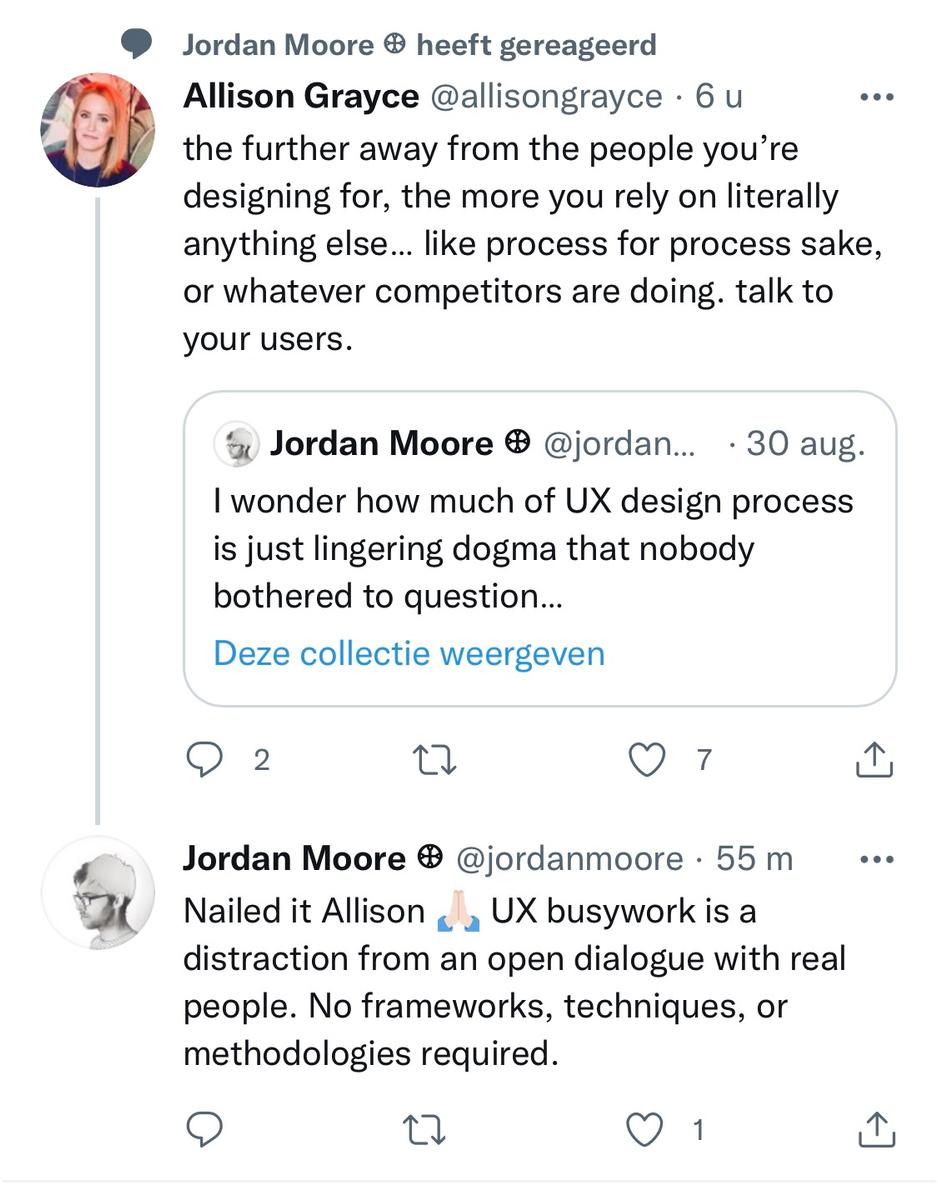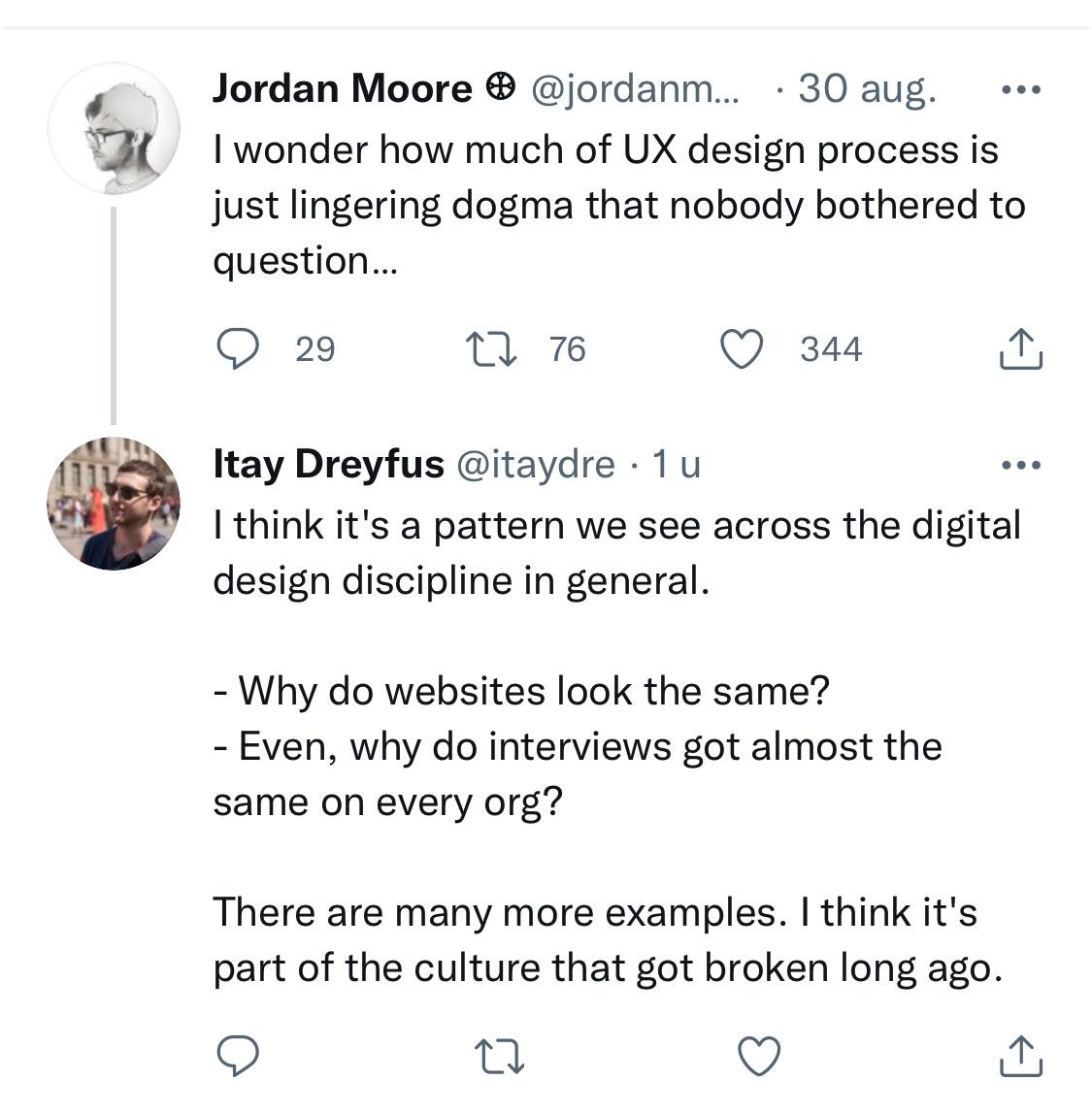What is artificial complexity? Offering a simple solution is not always in the best interest of a problem solver. If problems would be so easy there won’t be a market for all those savior ‘problem solvers’. There is some kind of incentive to make a problem a bit more complex. Just add that tiny bit of complexity to the recipe so you can sell it as some big magical thing. This misalignment in incentives has a major problem. The world gets crowded with complex solutions to simple problems.
Artificial Complexity
Bureaucracies keep eating the freed workforce "Bureaucracy expands to meet the needs of the expanding bureaucracy" --Oscar Wilde
The Gordian Knot Never pay for complexity of presentation when all you need is results. Alexander the Megalos was once called to solve the following in the Phrygian city of Gordium (as usual with Greek stories, in modern day Turkey). When he entered Gordium, he found an old wagon, its yoke tied with a multitude of knots, all so tightly entangled that it was impossible to figure out how they were fastened. An oracle had declared that he who would untie the knot would rule all of what was then called “Asia”, that is Asia minor, the Levant, and the Middle East. After wrestling with the knot, the Megalos drew back from the lump of gnarled ropes, then made a proclamation that it didn’t matter for the prophecy how the tangle was to be unraveled. He then drew his sword and, with a single stroke, cut the knot in half. No “successful” academic would ever follow such policy. And no Intellectual Yet Idiot: for instance it took medicine a long time to realize that, when a patient shows up with a headache, it much better to give him aspirin or recommend a good night sleep than do brain surgery, although the latter appears to be more “scientific”.
It took medicine a long time to realize that when a patient shows up with a headache, it is much better to give him aspirin or recommend a good night’s sleep than do brain surgery, although the latter appears to be more “scientific.” But most “consultants” and others paid by the hour are not there yet.
Philosophers making things more complicated then necessary http://paulgraham.com/philosophy.html?viewfullsite=1 Curiously, however, the works they produced continued to attract new readers. Traditional philosophy occupies a kind of singularity in this respect. If you write in an unclear way about big ideas, you produce something that seems tantalizingly attractive to inexperienced but intellectually ambitious students. Till one knows better, it's hard to distinguish something that's hard to understand because the writer was unclear in his own mind from something like a mathematical proof that's hard to understand because the ideas it represents are hard to understand. To someone who hasn't learned the difference, traditional philosophy seems extremely attractive: as hard (and therefore impressive) as math, yet broader in scope. That was what lured me in as a high school student. This singularity is even more singular in having its own defense built in. When things are hard to understand, people who suspect they're nonsense generally keep quiet. There's no way to prove a text is meaningless. The closest you can get is to show that the official judges of some class of texts can't distinguish them from placebos.
Universities are artificially complex They are all about signaling Big buildings You see that being dismantled through the Zoom revolution. No longer can they hold upon there building as reputation seeker.
A what you see is what you get mentality
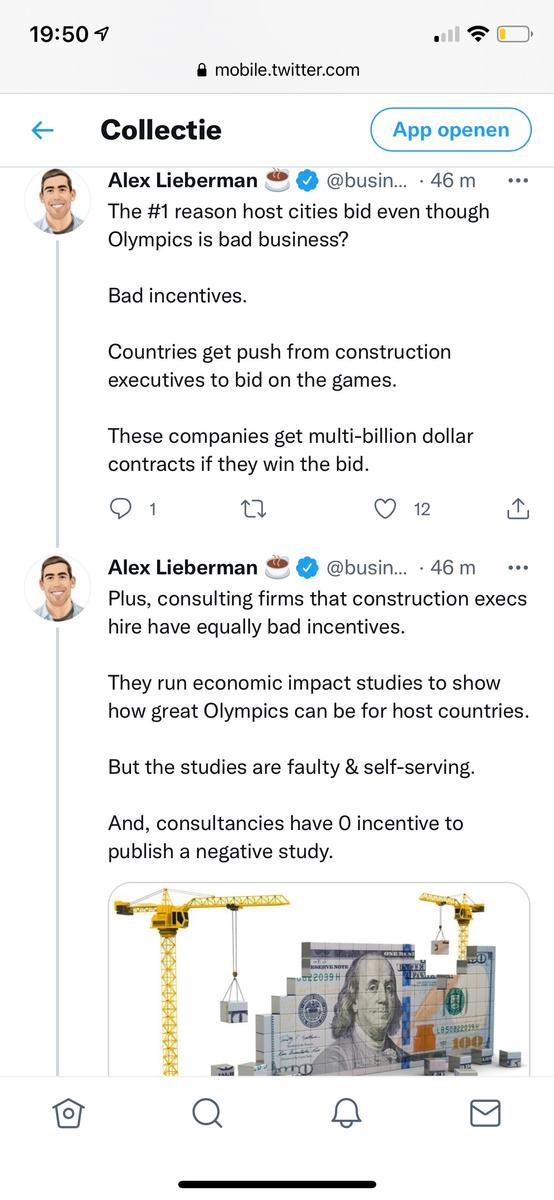
Another business of intervention Chapter 9 Skin in the game There is absolutely no gain for someone in such a position to propose something simple: you are rewarded for perception, not results.
Simplicity From skin in the game (page 29) Now skin in the game brings simplicity- the disarming simplicity of things properly done. People who see complicated solutions do not have an incentive to implement simplified ones. As we saw, a bureacratized system will increase in complication from the interventionism of people who sell complicated solutions be use that’s what their position and training invite them to do. “Things designed by people without skin in the game tend to grow in complication (before their final collapse)” There is absolutely no benefit for a person in such a position to propose something simple; when you are rewarded for participation, not results, you need to show sophistication. Anyone who has submitted a scholarly paper to a journal knows that you usually raise the odds of acceptance by making it more complicated than necessary. Further, there are side effects for problems that grow nonlinearly with such branching-out complications. Worse: “Non-skin in the game people don’t get simplicity’.
If you can't explain it simply, you don't understand it well enough"
Zero-sum If you think about the value of a lot of jobs, many are essentially zero-sum. Think about the value of a marketing agency. It is helping a car brand with a perfect value proposition and produces amazing advertisements for the latest car. At the same time, the competitor is doing the exact same thing. People can only spend their money once. So who wins? Similar a promising candidate for the elections is spending millions of dollar trying to win the election, the opposing candidate has to do the same, meanwhile only one can win. Multiple entities are essentially fighting for the same economic pie. These jobs are meant to cancel out the efforts of the opposing parties. Us against them. They are devoted to work that cannot directly increase overall human welfare. It’s zero-sum, only one can win. Let me remind you that you can't see the entire economy as zero-sum. It is the opposite: every voluntary transaction is an exchange benefiting both the buyer (who got what he wanted at a price he was willing to pay) and the seller.
As systems get harder to grasp, new tools appear to “simplify” them… which hide even more layers underneath.
We trade understanding for ease
The “use it or lose it” nature of budgets encourages people to spend money unnecessarily just to avoid future cuts, prioritizing the preservation of the budget over actual need or value. This creates waste and adds needless complexity, as systems end up rewarding spending for its own sake rather than genuine efficiency or impact.
When resources (like insurance, budgets, or even time) are available, there’s a subtle pressure to use them, sometimes regardless of actual need or value. This can lead to unnecessary purchases, services, or interventions—feeding into systems that thrive on activity, not outcomes. It’s a kind of feedback loop: the existence of resources or coverage creates demand for things that fill the gap, which in turn justifies the complexity of the system. The simplest, most direct path—only spending when it’s genuinely needed—gets lost in the noise.
Healthcare Systems: Navigating insurance, referrals, and billing codes can feel like a maze designed to confuse rather than help. The actual care often gets lost in the paperwork.
Personal Productivity: The obsession with optimizing every minute—using elaborate systems, apps, and hacks—can become a distraction from actually doing meaningful work.
What ties all these together is the sense that complexity often serves the system or the expert, not the person who actually needs the result.
I wonder how much of UX design process is just lingering dogma that nobody bothered to question… 8:07 PM · Aug 30, 2021 Jordan Moore @jordanmoore · Aug 30, 2021 The people behind certain UX design outputs have the incentive to keep the outputs there even if there are better ways of doing things. If they weren’t playing status games, you would fight for your method/technique/output to be replaced for the betterment of “the industry”. Jordan Moore @jordanmoore · Aug 30, 2021 I doubt many of the biggest and most meaningful fundamental shifts in design came from drawing up personas of fake characters with fake hopes, dreams and goals. Jordan Moore @jordanmoore · Aug 30, 2021 Or a competitive analysis. One way to ensure you end up doing things like everyone else is to reason from everyone else’s conclusions. Jordan Moore @jordanmoore · Aug 30, 2021 Same for wireframes. Why start there when today’s design tools let you get to high fidelity concepts just as quick? Jordan Moore @jordanmoore · Aug 30, 2021 So much of it seems like pointless going through the motions, “I better write up some personas because… well, it’s what everyone does” Architects don’t do this shit. Jordan Moore @jordanmoore · Aug 30, 2021 And before you go “they do make blueprints though” - you’re kidding yourself if UX ever gets anywhere near as complicated as constructing a building. Those who swear by process tend to hide behind it. Jordan Moore @jordanmoore · Aug 30, 2021 When something else goes wrong, they can point to the process and say they followed it exactly. “Nobody ever got fired for buying IBM”. Jordan Moore @jordanmoore · Aug 30, 2021 Anyway, food for thought. There is a lot of arbitrary busywork in digital design worth questioning deeply. I personally advocate for fucking around and finding out to arrive at new, (potentially untapped) value.
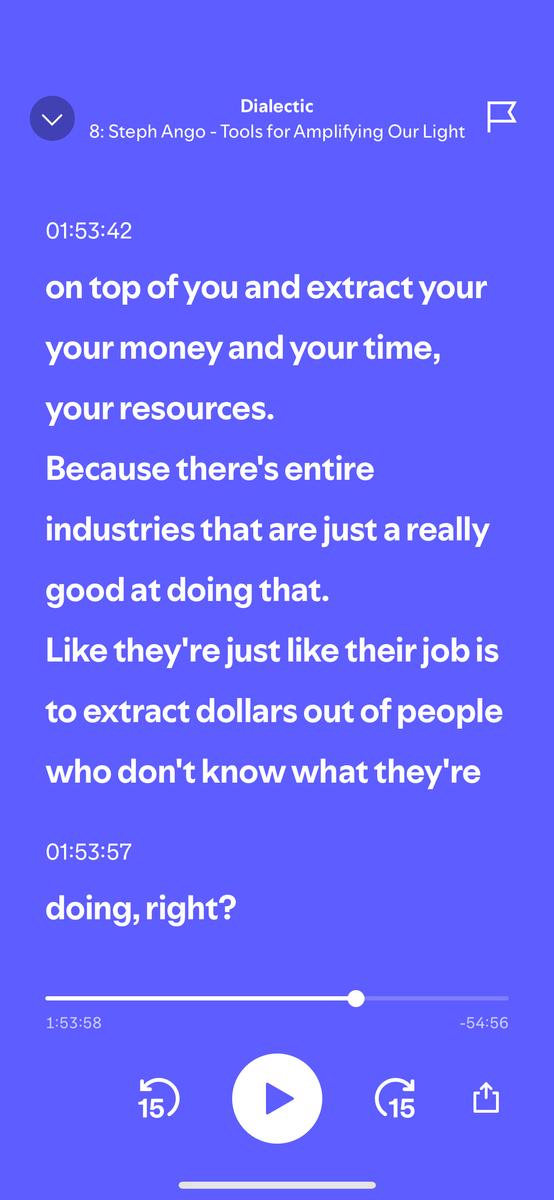
The legal profession is such a racket. They'll just add random charges to your account like "discussed email - $300" or "checked status of case - $200" and you have no idea what they did or why or if they even did anything at all. The incentives are so misaligned. I suppose it's the same for most professional services but it feels particularly bad with lawyers because they charge a lot, what they do is mostly intangible and it all has the air of authority and officialdom so you feel that you can't challenge it.
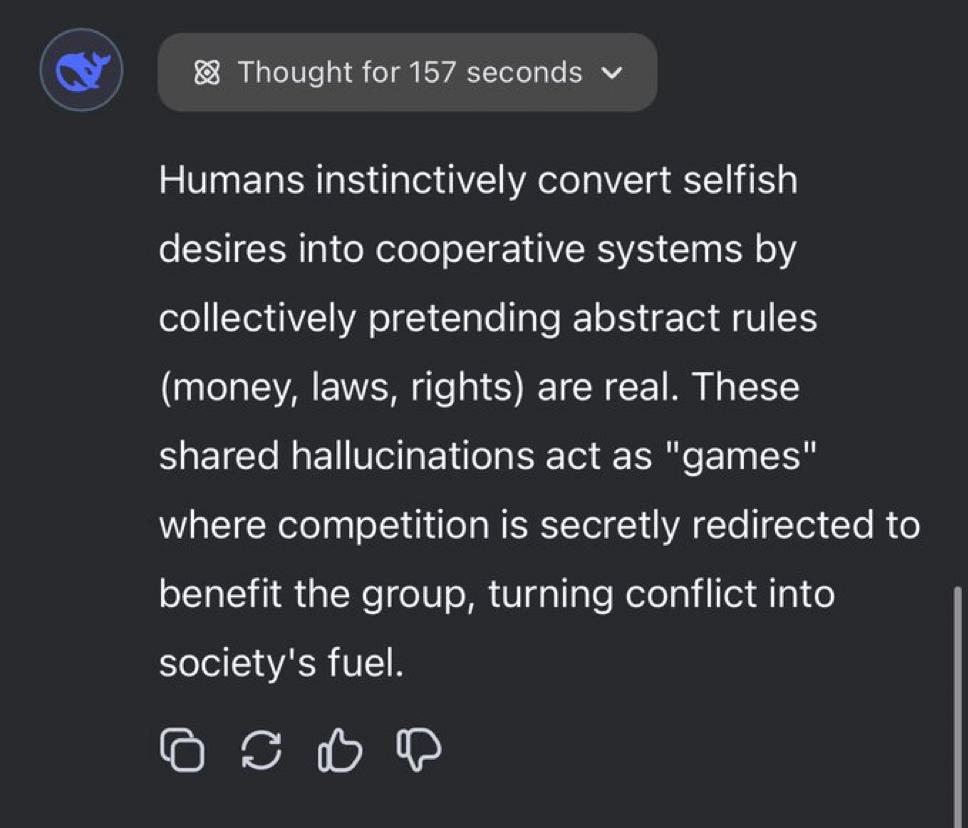

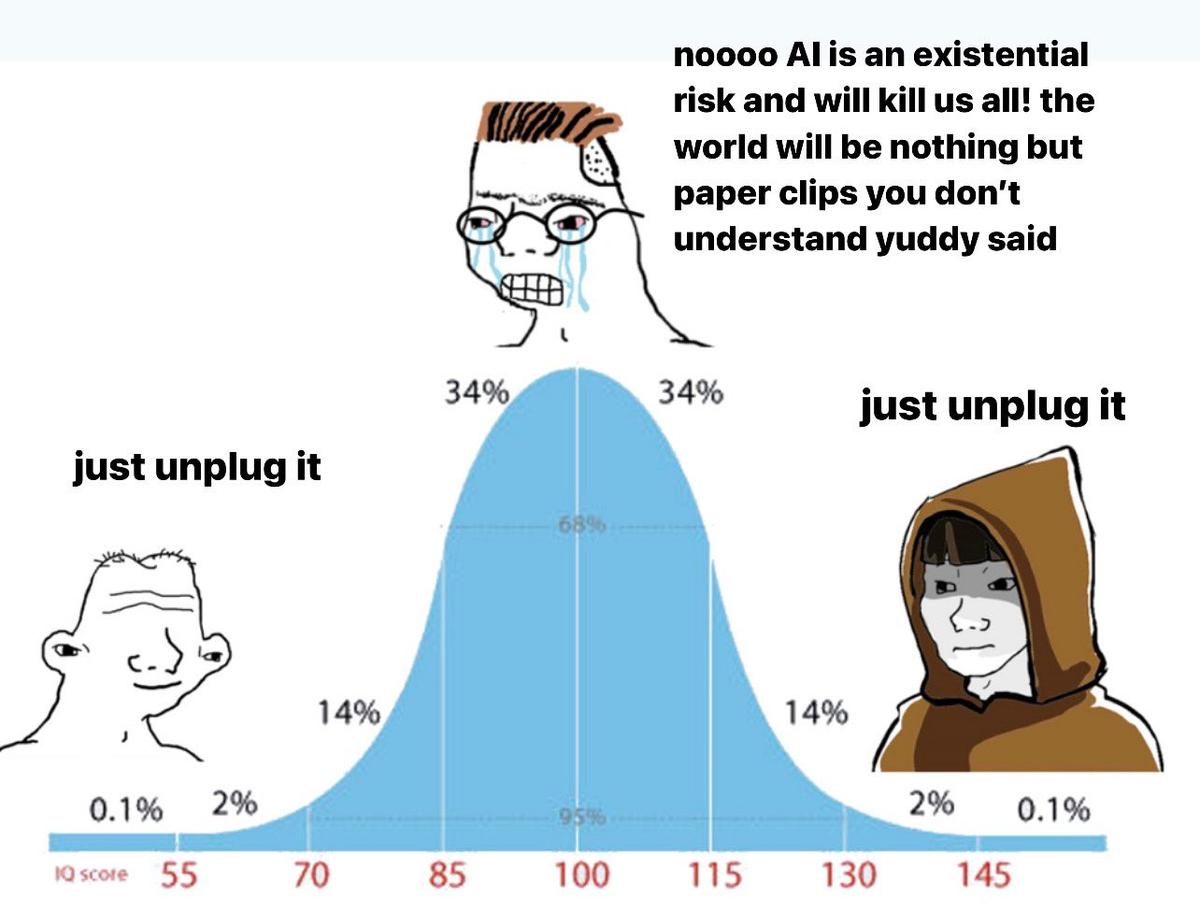
The Gordian Knot Never pay for complexity of presentation when all you need is results. Alexander the Megalos was once called to solve the following in the Phrygian city of Gordium (as usual with Greek stories, in modern day Turkey). When he entered Gordium, he found an old wagon, its yoke tied with a multitude of knots, all so tightly entangled that it was impossible to figure out how they were fastened. An oracle had declared that he who would untie the knot would rule all of what was then called “Asia”, that is Asia minor, the Levant, and the Middle East. After wrestling with the knot, the Megalos drew back from the lump of gnarled ropes, then made a proclamation that it didn’t matter for the prophecy how the tangle was to be unraveled. He then drew his sword and, with a single stroke, cut the knot in half. No “successful” academic would ever follow such policy. And no Intellectual Yet Idiot: for instance it took medicine a long time to realize that, when a patient shows up with a headache, it much better to give him aspirin or recommend a good night sleep than do brain surgery, although the latter appears to be more “scientific”.
Einstein's simple yet powerful ideas from 1905. In a simple, yet revolutionary paper that included at the most senior high school math, Einstein shared his views on relativity by providing a solution based primarily on the concept of time. It is to him that the phrase "If you can't explain it simply, you don't understand it well enough" is attributed.
“Things designed by people without skin in the game tend to grow in complication (before their final collapse)”
As we saw, a bureacratized system will increase in complication from the interventionism of people who sell complicated solutions be use that’s what their position and training invite them to do.
Further, the rich start using “experts” and “consultants.” An entire industry meant to swindle you will swindle you: financial consultants, diet advisors, exercise experts, lifestyle engineers, sleeping councilors, breathing specialists, etc.
Philosophers making things more complicated then necessary http://paulgraham.com/philosophy.html?viewfullsite=1 Curiously, however, the works they produced continued to attract new readers. Traditional philosophy occupies a kind of singularity in this respect. If you write in an unclear way about big ideas, you produce something that seems tantalizingly attractive to inexperienced but intellectually ambitious students. Till one knows better, it's hard to distinguish something that's hard to understand because the writer was unclear in his own mind from something like a mathematical proof that's hard to understand because the ideas it represents are hard to understand. To someone who hasn't learned the difference, traditional philosophy seems extremely attractive: as hard (and therefore impressive) as math, yet broader in scope. That was what lured me in as a high school student. This singularity is even more singular in having its own defense built in. When things are hard to understand, people who suspect they're nonsense generally keep quiet. There's no way to prove a text is meaningless. The closest you can get is to show that the official judges of some class of texts can't distinguish them from placebos.
It took medicine a long time to realize that when a patient shows up with a headache, it is much better to give him aspirin or recommend a good night’s sleep than do brain surgery, although the latter appears to be more “scientific.” But most “consultants” and others paid by the hour are not there yet.
A what you see is what you get mentality
